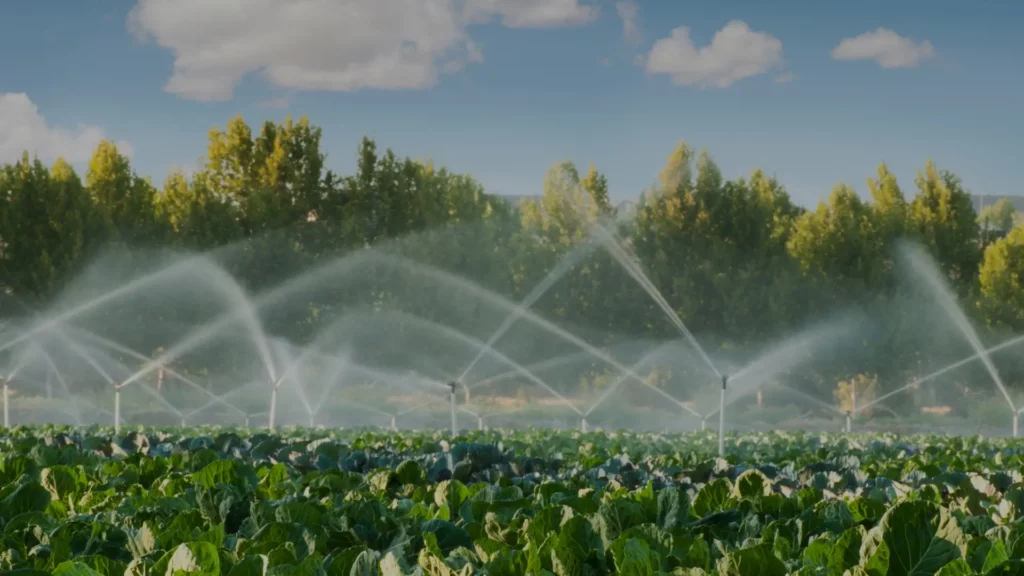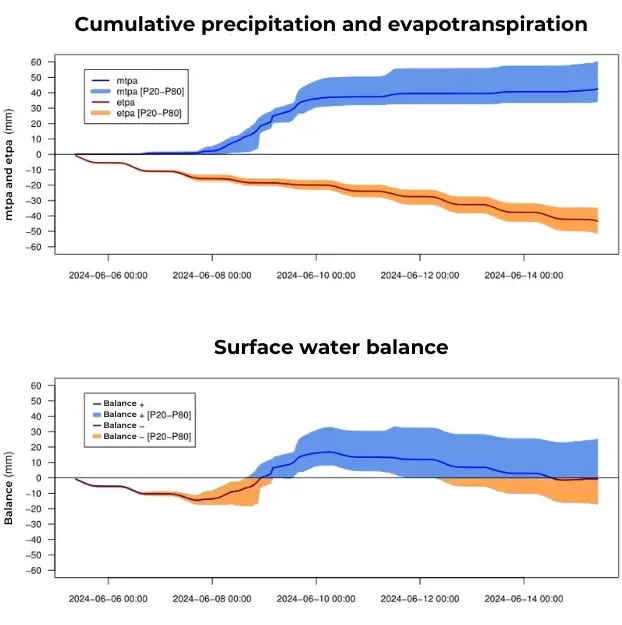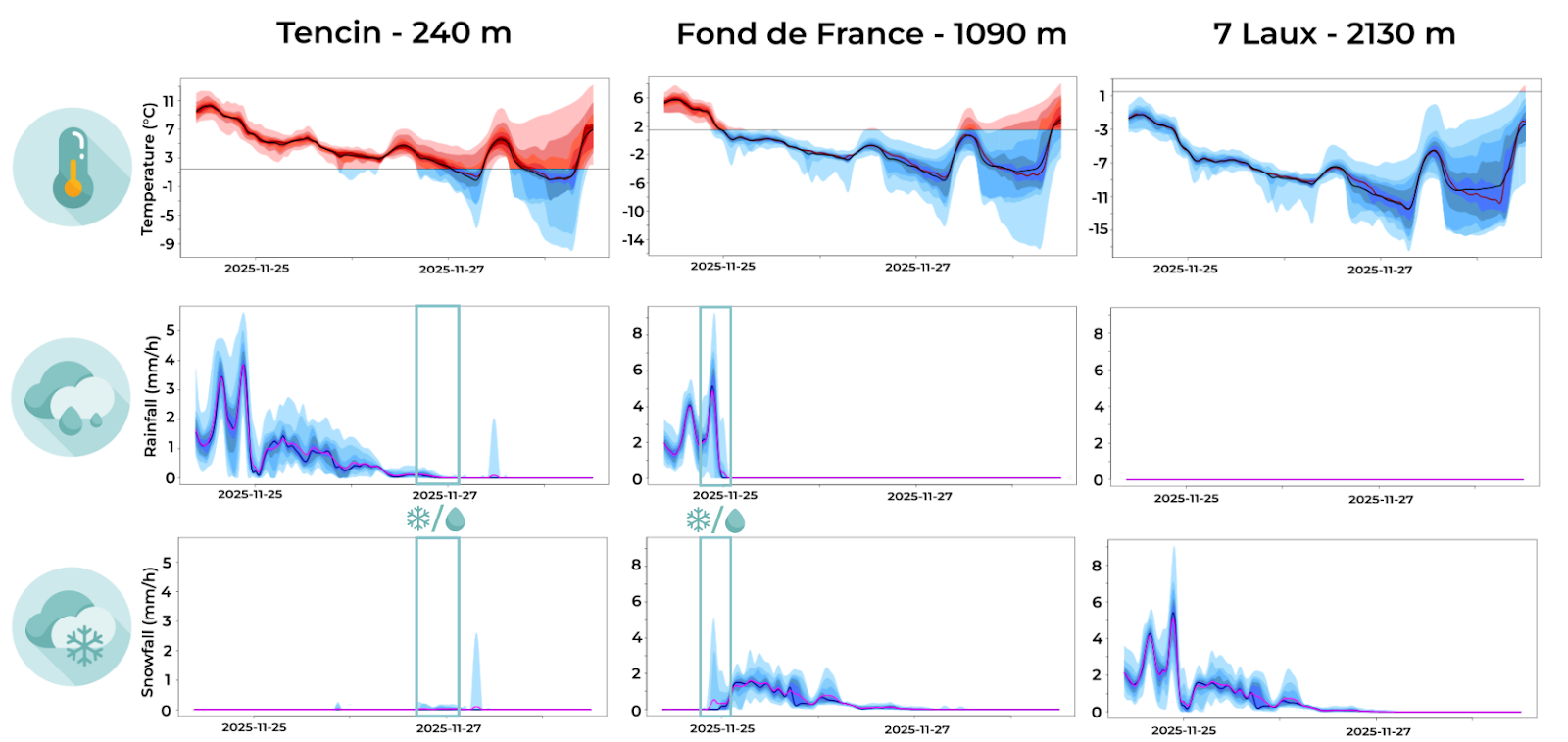Agriculture is highly sensitive to climatic variations. Among the major issues faced by farmers, irrigation management stands out. Whether traditional or modern, irrigation is essential for ensuring optimal agricultural yields, but it can also be a source of waste if poorly planned. Weather forecasts thus become an indispensable tool for effective water resource management.

The importance of irrigation management in agriculture
In many regions of the world, water is a precious and limited resource. Efficient irrigation management is crucial to ensure crop growth and food security while preserving water resources. Effective irrigation optimizes water use, prevents wastage, and minimizes costs for farmers.
Challenges of irrigation management
The main difficulty in irrigation management lies in the variability of weather conditions. Farmers need to make informed decisions about when and how much water to apply to their crops.
Too little water can cause water stress in plants, reducing yields, while too much water can lead to wastage, soil nutrient loss, drainage problems, and disease development.
The contribution of accurate weather forecasts
Accurate weather forecasts are invaluable allies in irrigation management. By providing information on upcoming precipitation, temperatures, and humidity, these forecasts allow farmers to plan their irrigation activities strategically. For example, if rain is expected in the next few days, farmers can delay their next irrigation.
Using a mix of weather models for increased accuracy
To ensure precise and reliable weather forecasts, it is essential to use a mix of weather models. Each weather model has its strengths and weaknesses, and by combining multiple data sources, forecasters can reduce prediction errors. Additionally, using multiple models allows for the calculation of confidence intervals, quantifying the uncertainty associated with the forecast. These confidence intervals are crucial for helping farmers make informed irrigation decisions, providing an estimate of forecast reliability and aiding in the assessment of potential risks associated with their actions.
FROGCAST weather forecasts: Your ally in irrigation management
The example above shows a FROGCAST 10-day forecast for two variables: total precipitation accumulation and cumulative potential evaporation (graph 1).
For each of these parameters, the average forecast (solid line) is complemented by P20 and P80 interquartile ranges (shaded area). Potential evapotranspiration is calculated using the FAO formula and depends on various meteorological parameters (temperature, wind, solar radiation, atmospheric pressure, and humidity).
Graph 2 presents a simplified surface water balance as the difference between precipitation and potential evaporation forecasts.

The forecast provides the following information:
- Up to June 8th, no precipitation is expected. With a potential evaporation of about 7mm/day, soils will dry out.
- Between June 8th and 10th, regular and significant rainfall (an average of 35mm with a confidence interval indicating an accumulation between 30 and 50mm) coupled with limited evapotranspiration due to disturbed weather conditions, reverses the balance.
- From June 10th, rarer precipitation and resumption of evapotranspiration.
- Over the entire period, a near-zero average balance is expected, with as much precipitation as evapotranspiration.
By coupling this information with initial soil moisture conditions, soil type, and the water needs of their crops (depending on the type of planting and their growth stage), a farmer can estimate the best timing and volume of water needed to irrigate their lands.
Integrate FROGCAST’s multi-model weather forecasts into your decision support tools, enabling farmers to optimally manage their irrigation. Access precise data for the next 15 days with hourly time steps for the variables of your choice (hourly precipitation, cumulative precipitation, evapotranspiration, etc.).
Obtain probabilistic forecasts for all these variables, helping farmers make informed decisions, even in the face of weather uncertainty.
Advanced technologies in irrigation management
Today, farmers have access to a range of advanced technologies to optimize irrigation management. From soil moisture sensors to computer-controlled smart irrigation systems, these tools allow farmers to closely monitor the water needs of their crops and adjust irrigation accordingly. By combining these technologies with accurate weather forecasts, farmers can make more informed and efficient irrigation decisions.
Conclusion
Irrigation management in agriculture is a complex but crucial challenge for ensuring optimal yields while preserving water resources. Accurate weather forecasts play an essential role in this management, enabling farmers to plan their irrigation activities more strategically and efficiently. By combining these forecasts with advanced technologies, farmers can maximize the efficiency of their irrigation systems while minimizing their environmental footprint.



